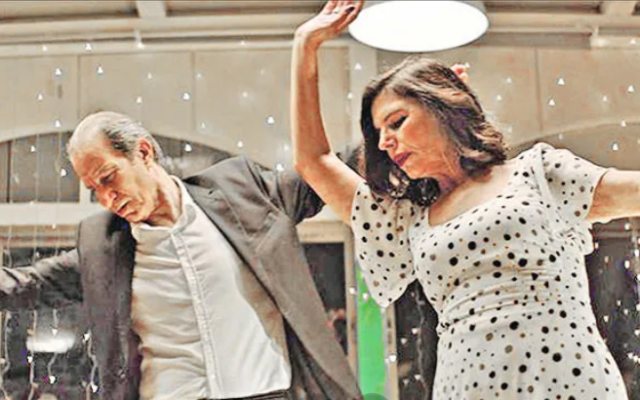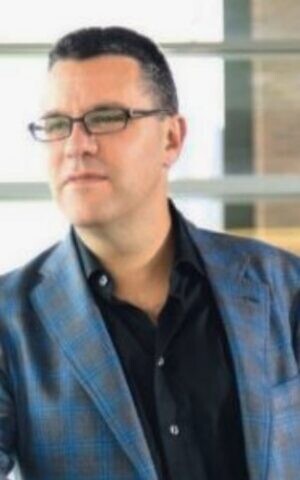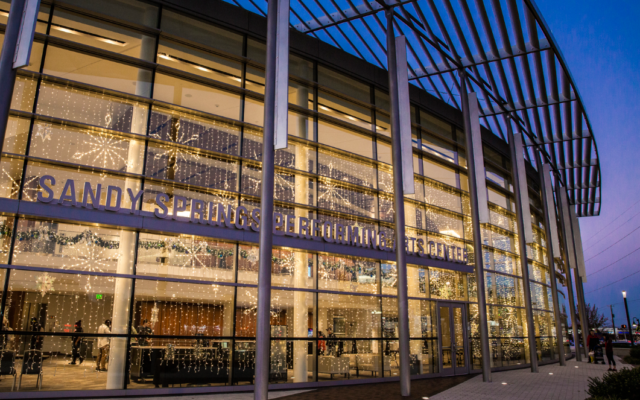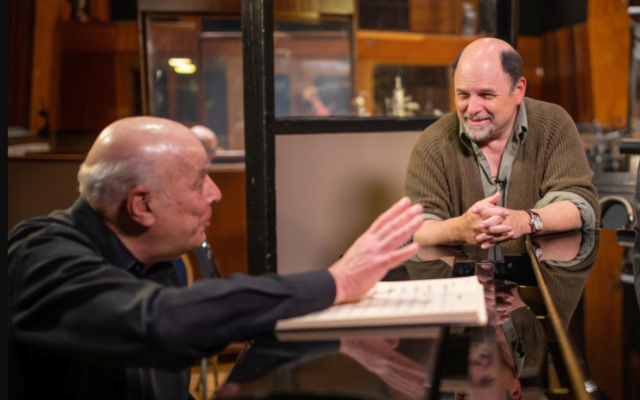AJFF Returning to Theaters
Kenny Blank, executive director of the Atlanta Jewish Film Festival, shares plans for the festival that begins Feb. 8.
The Atlanta Jewish Film Festival will be back at the Sandy Springs Performing Arts Center and four other theaters this year with a full lineup of 40 feature films and documentaries from 16 countries. There are also two programs of film shorts. Twenty-three of the films will be available as virtual events.
Ticket sales begin at 12 p.m., Jan. 27. The festival opens Feb. 8 with an offbeat Israeli comedy drama, “Karaoke,” and closes Feb. 21 with “Killing Me Softly With His Songs,” a documentary about the lyricist and composer, Charles Fox.
The AJT spoke with Kenny Blank, the artistic director and executive director of the AJFF, who unveiled this year’s program of films. He commented about his eagerness to see audiences back in theaters, after the festival was forced to go virtual because of the COVID pandemic.

KB: First and foremost, we do want to return back to the original magic by being back in theaters. We’re really putting the priority on that in-theater experience. There is no replacement for watching these films on the big screen the way they were intended to be seen. We want to give our audience an important opportunity to dialog around those films, with other festival goers, and also with the film artists that we’ll be welcoming right there in the theater with them.
AJT: In view of the challenges of producing films in the last several years, how difficult has it been to assemble your program this year?
KB: There has not been really any change in the quality of entries that we’ve received. I think all of us, at the beginning of the pandemic, we were expecting a slowdown, if not outright shutdown, to film production; but remarkably, we haven’t seen that. I think, looking at the final lineup, the results speak for themselves. I think the audience will find that this year’s lineup, in terms of diversity, quality, and the number of world premieres, North American premieres, U.S. premieres, will once again leave audiences inspired and thinking. And, in having really strong, powerful, positive reactions to these cinematic works.

AJT: The festival always seems to be trying to build bridges in the community with these films, you even give a prize to the best film that does that. How do you see the festival accomplishing that?
KB: Amongst the circuit of Jewish film festivals worldwide, we are unique in that we are one of the few that really prioritizes serving our core Jewish audience that is, of course, naturally drawn to the films and the subject matter. It’s a way to connect with your Jewish identity. It’s a way to celebrate Jewish culture. It’s the key to our success and our vitality.
But one-quarter of the audience identifies as non-Jewish, and they’re coming because they want to see great storytelling told through a Jewish lens. There’s really something for everyone. Drama, comedy, romance, animation, musical films. We even have a supernatural film musical, just really a little mix of everything. And so, part of our mission is to build bridges through film. The film is the most accessible art form there is.
It allows people to get outside their comfort zones or their political corners or different perspectives and walk in someone else’s shoes. We want to invite the full community into our tent and be part of these film experiences, Otherwise, we’re kind of just talking in a circle amongst ourselves.

AJT: How does the feedback you get shape what you do? KB: That is part of the intangible magic that happens only once the festival is underway. We have this wonderful curatorial process by which a cross-section of community volunteers provides feedback on the film entries, and our selection committee is making recommendations, and then we present them to the audience. We are always very audience-focused in terms of how we are serving the needs of our audience, both in terms of the programing, as well as everything from ticketing to how we’re marketing the festival to the kind of experience that the customer experiences on-site. Those are all things that we value deeply. It’s because the reaction to the programing is first and foremost the most important thing.
AJT: How would you characterize the state of Jewish film as you approach the opening of this year’s festival?
KB: Our filmmakers continue to find much in our shared human experience, much of what’s happening in world events to inspire them, motivate them, to tell these stories on film. It’s the most accessible art form there is. It’s no coincidence that during the pandemic people turned to films as a way to make sense of their world, to maintain their connection to humanity. And I think the need for that continues. So, I think the state of Jewish cinema is strong, and I think people will see that, once again, in the diversity of films and genres in this year’s lineup.

The AJT is a presenting sponsor of the 2023 AJFF. Full details of this year’s festival can be found at www.ajff.org.




comments